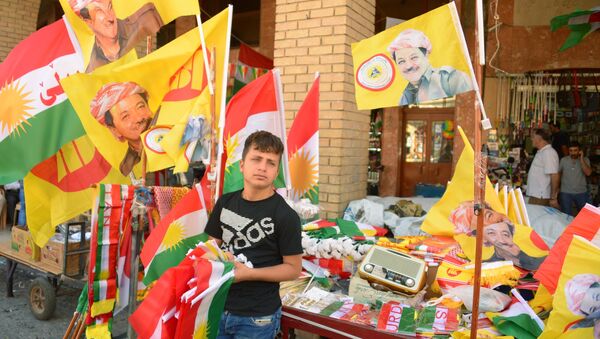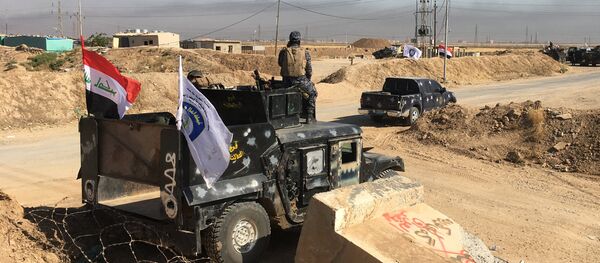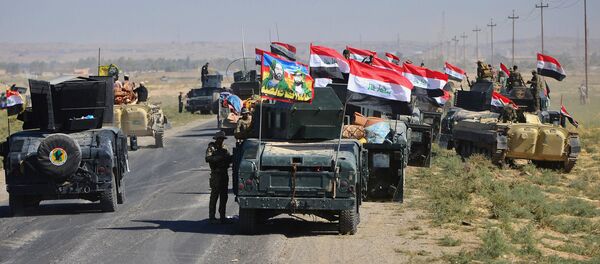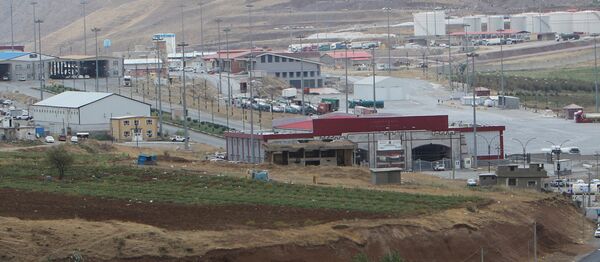The independence referendum in Iraqi Kurdistan has become a litmus test for US-Kurdish relations. Speaking to Sputnik Turkey, Kurdish civilians shared their views on Washington's foreign policy, emphasizing Russia's growing role in Middle Eastern affairs.
"In his latest address to the civilians of [Iraqi] Kurdistan President [Masoud] Barzani openly spoke about the development of relations with the US and that [the Americans] remained silent when the Iraqi Armed Forces pressured and attacked the Kurdish Peshmerga using US weapons," Ardelan Muhammed, an Iraqi Parliament member from the Kurdistan Democratic Party (KDP), told Sputnik.
'Russia More Trustworthy Than the US'
Although Erbil has no shared strategic interests with Russia, Moscow demonstrates a friendly position towards the Kurds, the parliamentarian noted. "Barzani emphasized Russia's attitude and praised its stance expressing the wish that the government of Iraqi Kurdistan would strengthen relations with Russia in the future."
Kurdish journalist Zeynep Sindi echoes Muhammed. She regards Russia as a trustworthy partner, in contrast to the US.
"Russian President Vladimir Putin said that the relationship between Russia and the Kurds goes deep into history and cannot be disrupted," the journalist said. "The idea is that President Barzani is confident in Russia's policy at the same time distrusting the US that is acting strictly within the framework of its interests."
Burha Rauf a teacher from Sulaymaniyah, shares a similar stance: "Yes the region is mostly controlled by the US, especially Iraq and the Kurdistan Region, however, Russia demonstrated a respectful and dignified stance towards Iraqi Kurdistan, its [independence] referendum and the rights of its people."
Despite the fact that Iraqi Kurdistan "does not have proper relations with Russia, it could provide its assistance to the [autonomous region]," Rauf believes.
Saman Muhammed, a butcher from Erbil, slammed Washington's position on the Iraqi Kurdistan independence referendum. At the same time he praised Russia's stance and respect of the will of the Kurdish people, adding that it was very important for the Kurds.
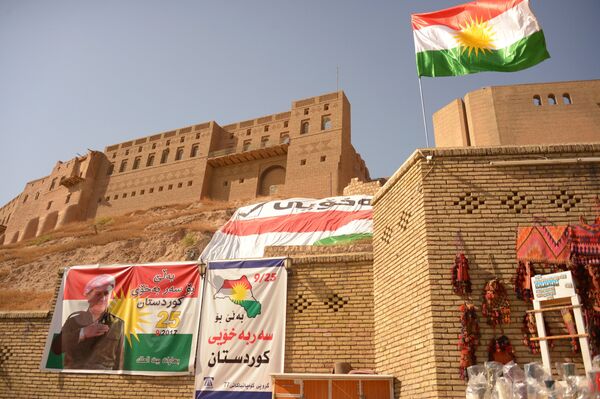
'Iraqi Kurdistan Needs to Turn to Russia'
Muhammed's countryman Nabil Hidir believes that Erbil should reconsider its relations with Washington and establish strong ties with Russia, which currently "plays a big role in the Middle East." According to Hidir, the US behaved unfriendly to the Kurds, especially after the capture of Kirkuk and other disputed territories by the Iraqi Armed Forces.
According to Kurdish writer Salih Tayro, Washington failed to meet the Kurds' aspirations.
"From the outset of the war against Daesh (ISIS/ISIL) the Kurdish Peshmerga have fought for three years side by side with the US and its coalition," Tayro pointed out. "However, the US position changed during the events of October 16 and, perhaps, the Iraqi Armed Forces attacked [Iraqi] Kurdistan with the US assistance."
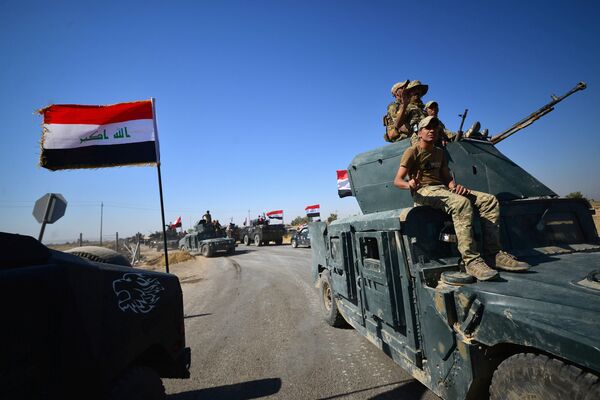
"It became clear that America doesn't understand the wishes of the Kurdish people. In contrast, Russia's policy was positive and it demonstrated respect to the rights of the Kurds," the writer said.
Berlin-based Kurdish journalist Sarkaut Hidir agrees that Masoud Barzani has lost his trust in the Americans and turned to Russia. However he asked rhetorically whether Moscow supports Barzani's strategy and how the politician may benefit from Russo-Kurdish relations.
Sputnik's interlocutors stated that they did not have much trust in the US even before the referendum. All of them agreed that Russia, not the US, has the greatest influence in the region.
'Iraqi Kurds Unlikely to Sever Ties With Washington'
However, Bilgay Duman, a specialist in Iraqi affairs at the Center for Middle Eastern Strategic Studies (ORSAM), a non-partisan think tank based in Ankara, opined that despite the current disenchantment Iraqi Kurdistan is unlikely to sever its ties with the US.
"It was the US who had been engaged in the creation of this structure [the Kurdistan Region] in the north of Iraq since the 1990s, who promoted its growth, who supported it," Duman told Sputnik. "The people of Iraqi Kurdistan understand that the preservation of this structure or the realization of the dream of an independent state is impossible without US support."
At the same time, he believes that Washington for its part won't turn its back on the Kurds: "Even if Masoud Barzani took a step that could upset the balance of power in the region, I do not think that the US would suddenly completely stop investing [in the region] which it has been supporting for 30 years."
The Iraqi Kurdistan independence referendum that took place on September 25 became the trigger point for changes in the region. More than 90 percent of the voters who took part in the vote backed the independence from Baghdad. Iraqi authorities declared the referendum illegal, while Turkey and Iran criticized the plebiscite heavily, threatening to impose tough sanctions on Erbil.
The referendum resulted in the military operation conducted by Iraqi government forces in mid-October and the Kurds losing territories and oilfields in the disputed Kirkuk province.
As a result, on October 29 the president of Iraqi Kurdistan, Masoud Barzani, officially announced that he refused to extend his duties expiring on November 1, 2017.
Speaking to Sputnik a KDP representative, Hoshawi Babakr, said that Barzani will remain the leader of the KDP, but is unlikely to participate in the upcoming presidential election. Babakr added that the presidential election in the region would take place simultaneously with the parliamentary ones.

